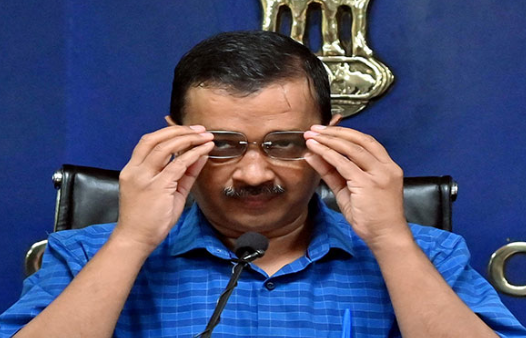Repeated non-compliance of summons by Arvind Kejriwal was contributing factor in arrest: Delhi HC
New Delhi [India], April 10 (ANI): The Delhi High Court has upheld the legality of Delhi Chief Minister Arvind Kejriwal’s arrest by the Enforcement Directorate in an alleged excise case and said the repeated non-compliance of summons for over a period of six months by the AAP leader was indeed a contributing factor in his arrest.

“Had the petitioner joined the investigation pursuant to the issuance of summons under Section 50 of PMLA,” asked the court on Tuesday, adding that he could have given his version before the investigating agency against the material that it had collected.
The bench of Justice Swarna Kanta Sharma, while dismissing Kejriwal’s plea also stated that the conduct of Arvind Kejriwal of not joining the investigation left little option with the ED other than his arrest for the purpose of investigating a pending case, in which other co-accused are in judicial custody, and the investigating agency is also running against time in view of the order of the Supreme Court which it was ordered that the trial, in this case, should proceed expeditiously.
This Court asked how the Directorate of Enforcement could have recorded the statement of Kejriwal under Section 50 of the Prevention of Money Laundering Act (PMLA) when he did not present himself before the investigating agency for the said purpose on nine occasions, the bench said, adding that after not presenting himself before the investigating agency on nine occasions, he cannot now turn back and argue that his statement has not been recorded under Section 50 of PMLA when it was he himself who refused to present himself before the ED that was calling him for exactly the same purpose for the last six months.
However, considering the fact that the ED was in possession of material on the basis of which it had reasons to believe that the petitioner was guilty of the offence of money laundering, it would have had no recourse available but to arrest the petitioner and seek his remand so as to confront him with the statements of witnesses and approvers and other incriminating material collected during the course of the investigation, said the bench.
While concluding the judgement, the Court holds that Judges are bound by law and not by politics. The Court also holds that judgments are driven by legal principles and not political affiliations.
The court noted that Senior Counsel appearing on behalf of the petitioner, Arvind Kejriwal had argued that the arrest made by the Directorate of Enforcement was malafide, and made at the time of elections, and thereby seriously compromising ‘free and fair elections’ and thus, also affecting ‘democracy’ which in turn is ‘basic structure’ of the Constitution of India. In this Court’s opinion, “the Courts of law are one of the pillars of democracy. Judges, as custodians of justice, are bound by the law and not by political considerations.”
The Court while holding the arrest of the petitioner and the remand order dated March 22, 2024, valid, said that Kejriwal’s arrest is not in contravention of Law and remand can’t be termed “illegal”.
The court further stated that this court is of the opinion that the accused has been arrested and his arrest and remand have to be examined as per law and not as per the timing of elections. Kejriwal’s challenge to the timing of arrest before general elections in the absence of any mala fide on the part of ED is not sustainable, said the court.
Kejriwal was arrested on March 21 by the ED in relation to the excise policy case.
The trial court on April 1, sent Kejriwal to judicial custody till April 15. The ED alleged that the Aam Adami Party (AAP) is the major beneficiary of the proceeds of crime generated in the alleged liquor scam.




